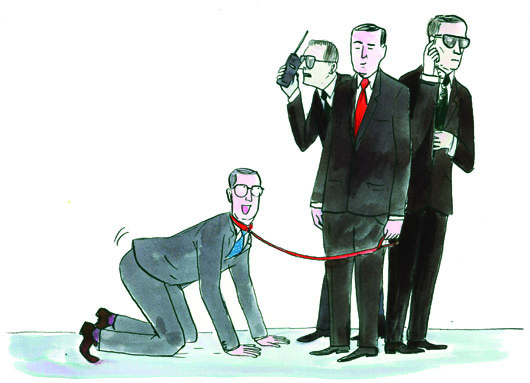Amidst the outrage created by the recently released “torture memos,” we have become acquainted with a group of previously unknown actors: the lawyers.

Now well on their way to infamy, our “colleagues” in the Office of Legal Counsel at the US Department of Justice provided the CIA with guidance on what degree of “interrogation” constitutes torture. The result was legal advice so morally (and likely legally) misguided, that criminal charges remain a possibility.
Should lawyers be subject to prosecution for simply offering an opinion? Would such a prosecution acknowledge a conspiracy to commit torture on one hand while “criminalizing policy” on the other? Despite my opinion that “policy” is either legal or not, whether these “torture memos” meet such a standard of malpractice remains a complicated legal question to be discussed another day.
What truly concerns me is what went through the minds of these lawyers as they wrote (with great legal specificity) about slamming detainees into walls, depriving them of sleep, manipulating their diets, placing them in cramped confined spaces or stress positions, and simulating drowning through waterboarding.
What exactly were they thinking? Was the fact that such “interrogation” techniques are degrading, inhumane, and induce significant pain and suffering, whether or not they meet the narrow legal — and notably American — definitions of torture, not sufficient to activate some higher moral code of legal practice?
The appropriate balance between zealous client-guided advocacy and acting as an agent for the realization of both fundamental justice and the rule of law doesn’t exist in the black letter of the law. It exists in an unwritten obligation to the profession, the greater (global) community; and, it demands an understanding of the greater social context in which we practise.
If these memos had been written with consideration, understanding, and sensitivity to the history of torture, the conclusions of such memos would have been vastly different.
Aside from the myriad literature condemning torture, there are very real precedents condemning just this type of interrogation as torture — perhaps the most astonishing example, in this instance, is the action the United States took following the Second World War, when it executed Japanese perpetrators of torture (somehow ironic in and of itself). On the list of torture methods employed by the Japanese: waterboarding.
Physicians take the Hippocratic oath, swearing that, above all, they will do no harm. Would a similar oath be that much more complicated for the legal profession? Perhaps. Despite any written or unwritten code, throughout history we have witnessed the indirect (and regrettably, often direct) participation of legal, medical, and other professionals in the most atrocious of human rights abuses, genocide, war, and armed conflicts.
Does the indirect participation by professionals, often clinging to the status of mere “advisor,” in any way lessen the responsibility for injustices committed under the guise of their “advice”?
In the present case, the idea that reliance on judicial interpretation could be used as a due diligence defence for torture is nothing short of obscene.
You may disagree, in which case there is always the “The Yuppie Nuremburg Defense” — at the end of the day “we all have a mortgage to pay.” However, I suspect most lawyers would want to do so without resorting to acts of torture.
Nils Engelstad is a Toronto lawyer
Illustration by Graham Roumieu

